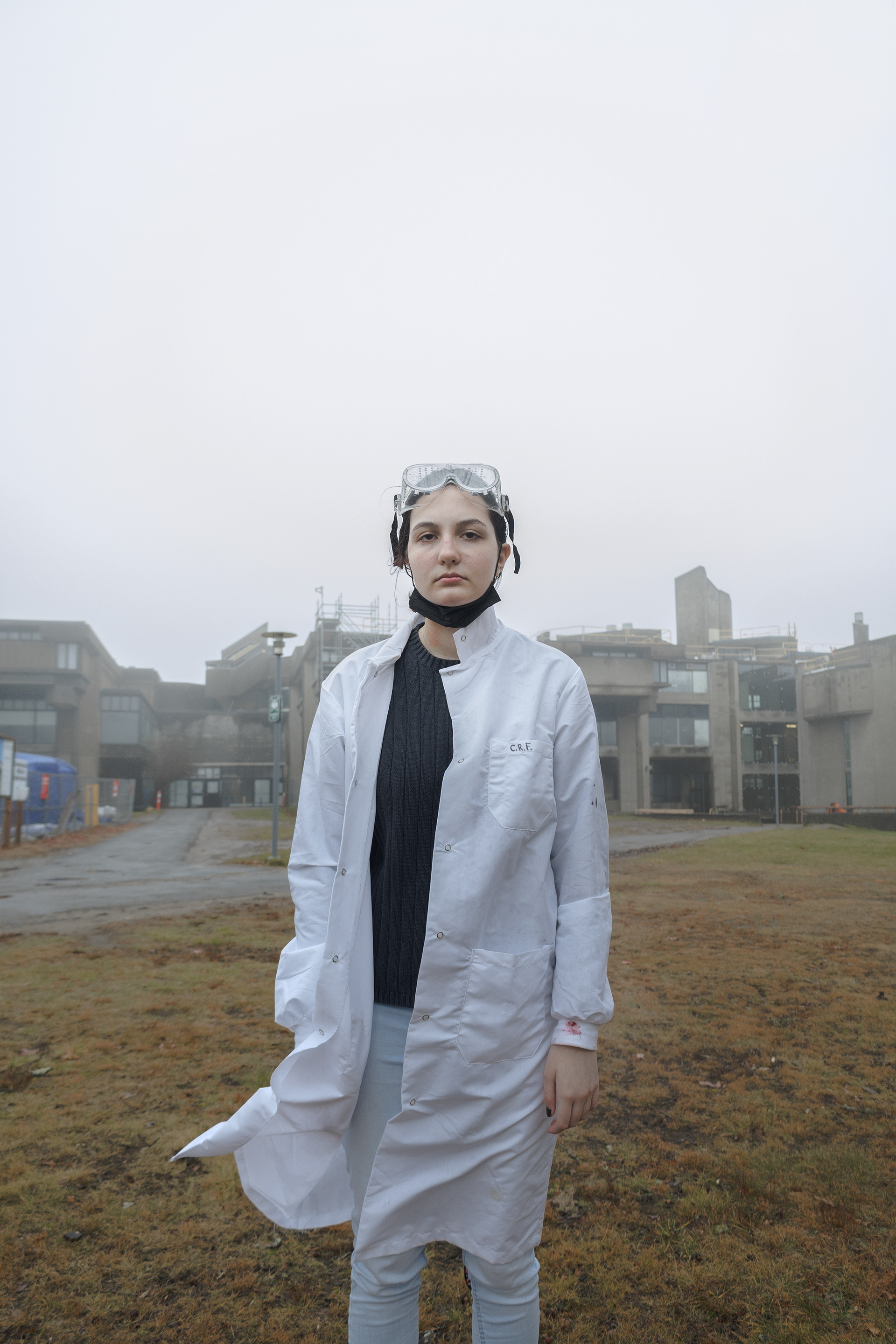
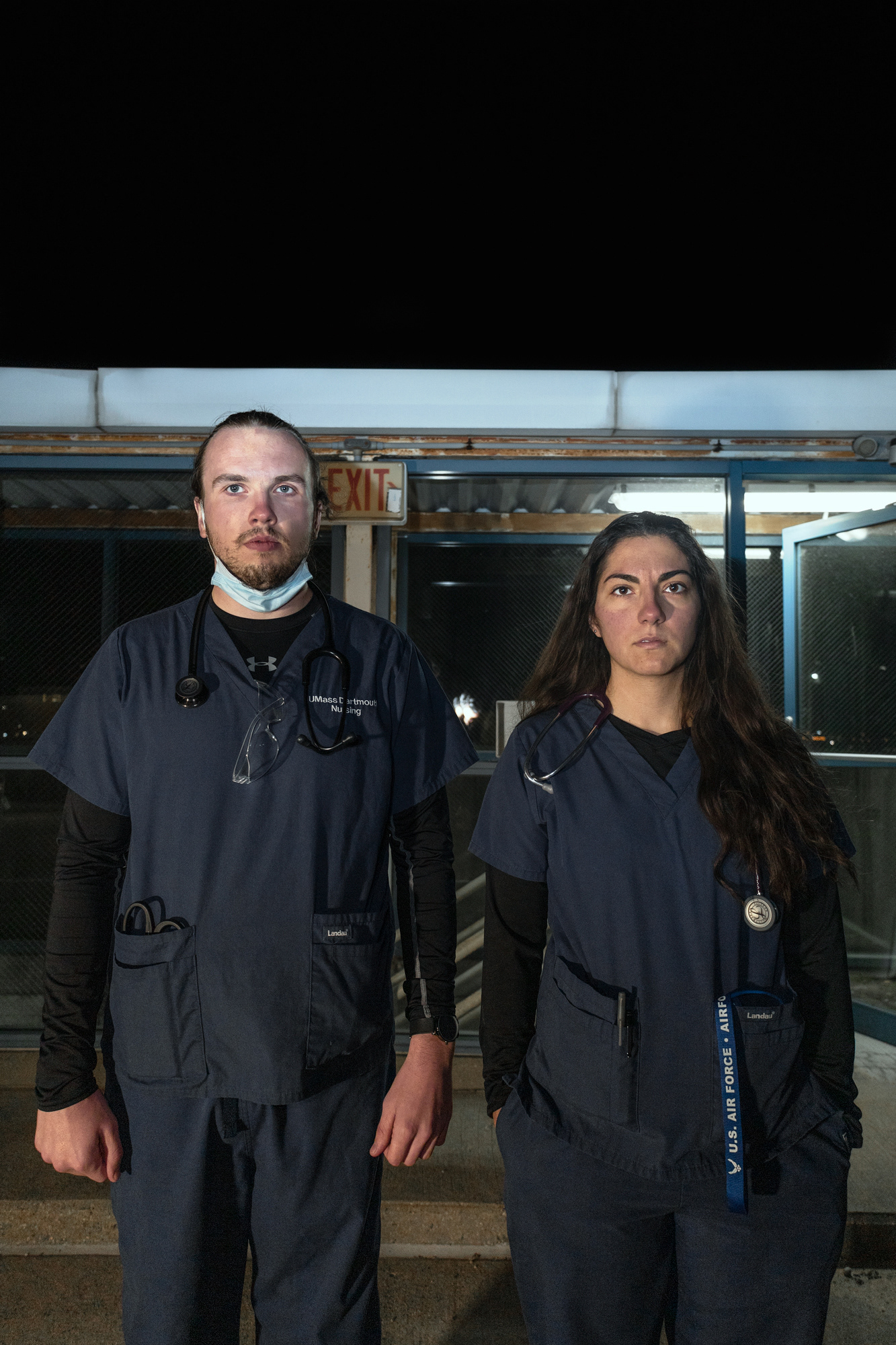
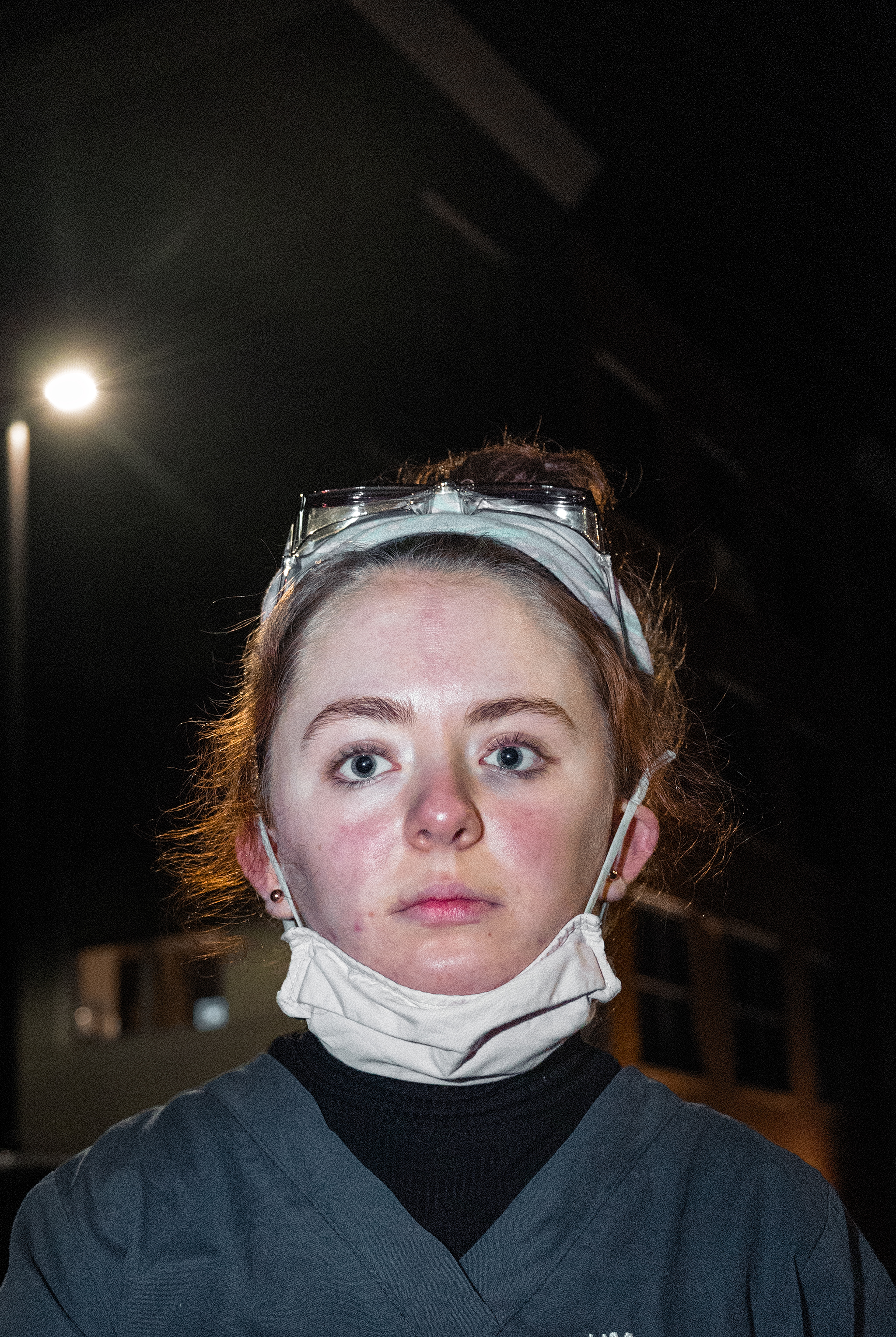
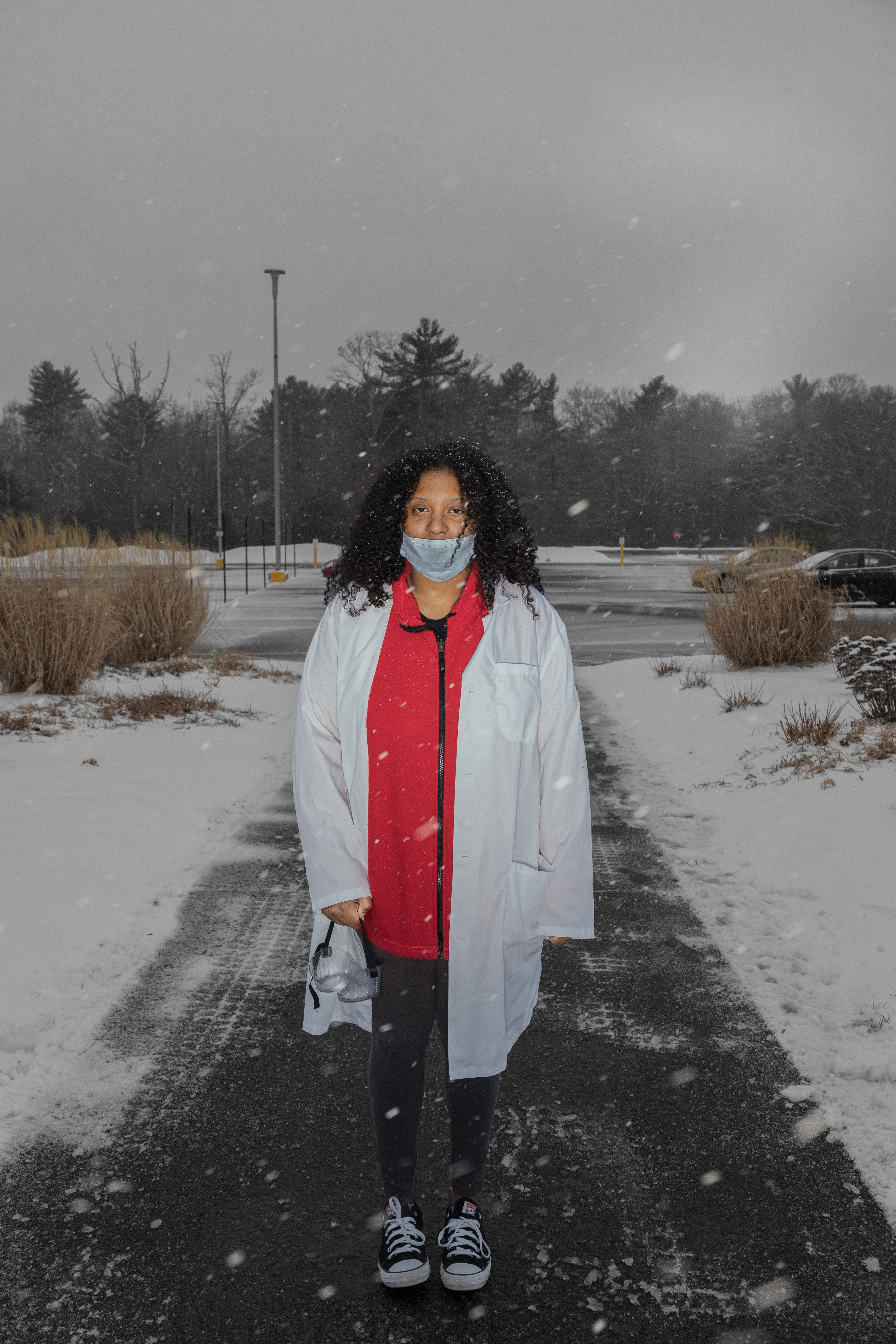
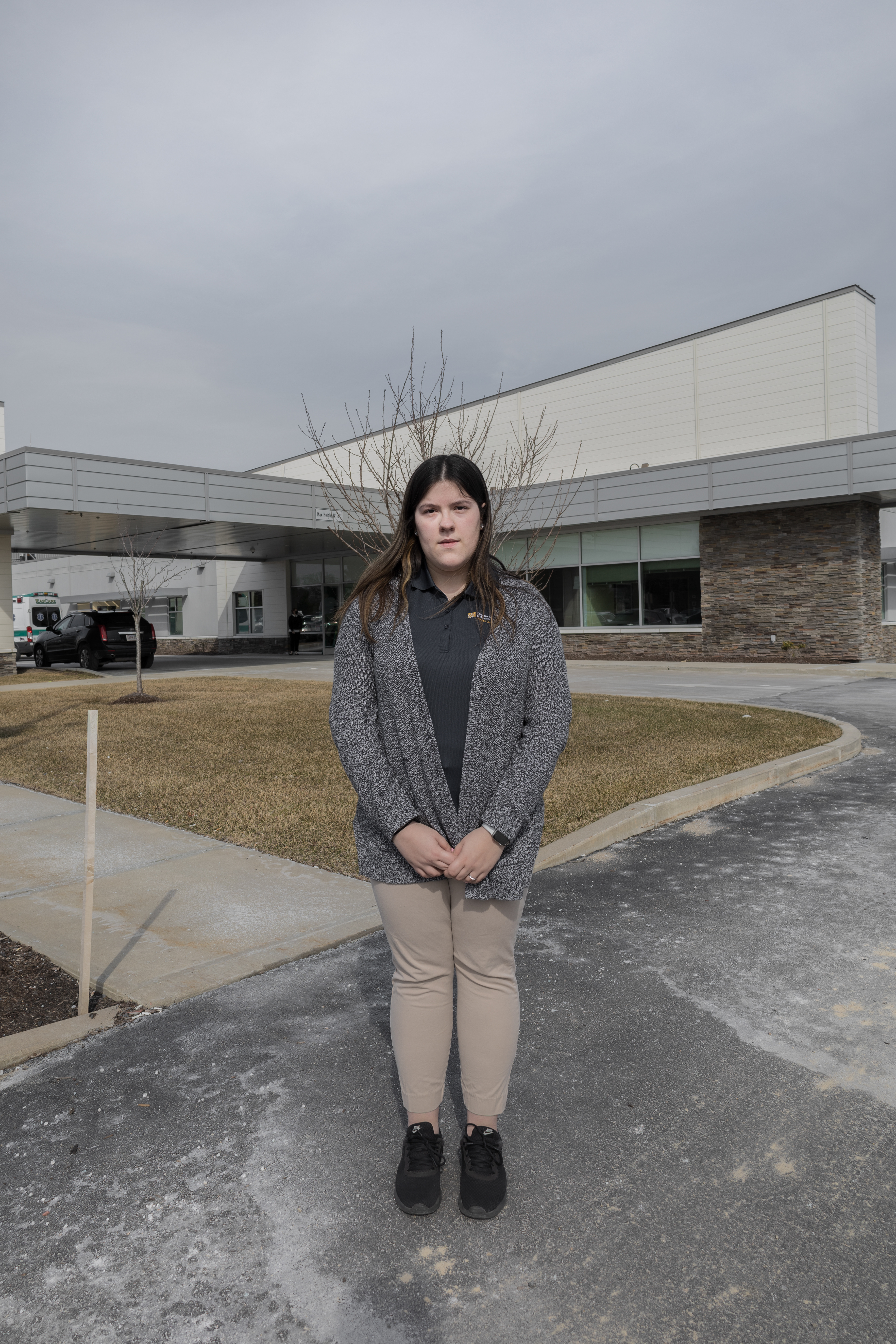
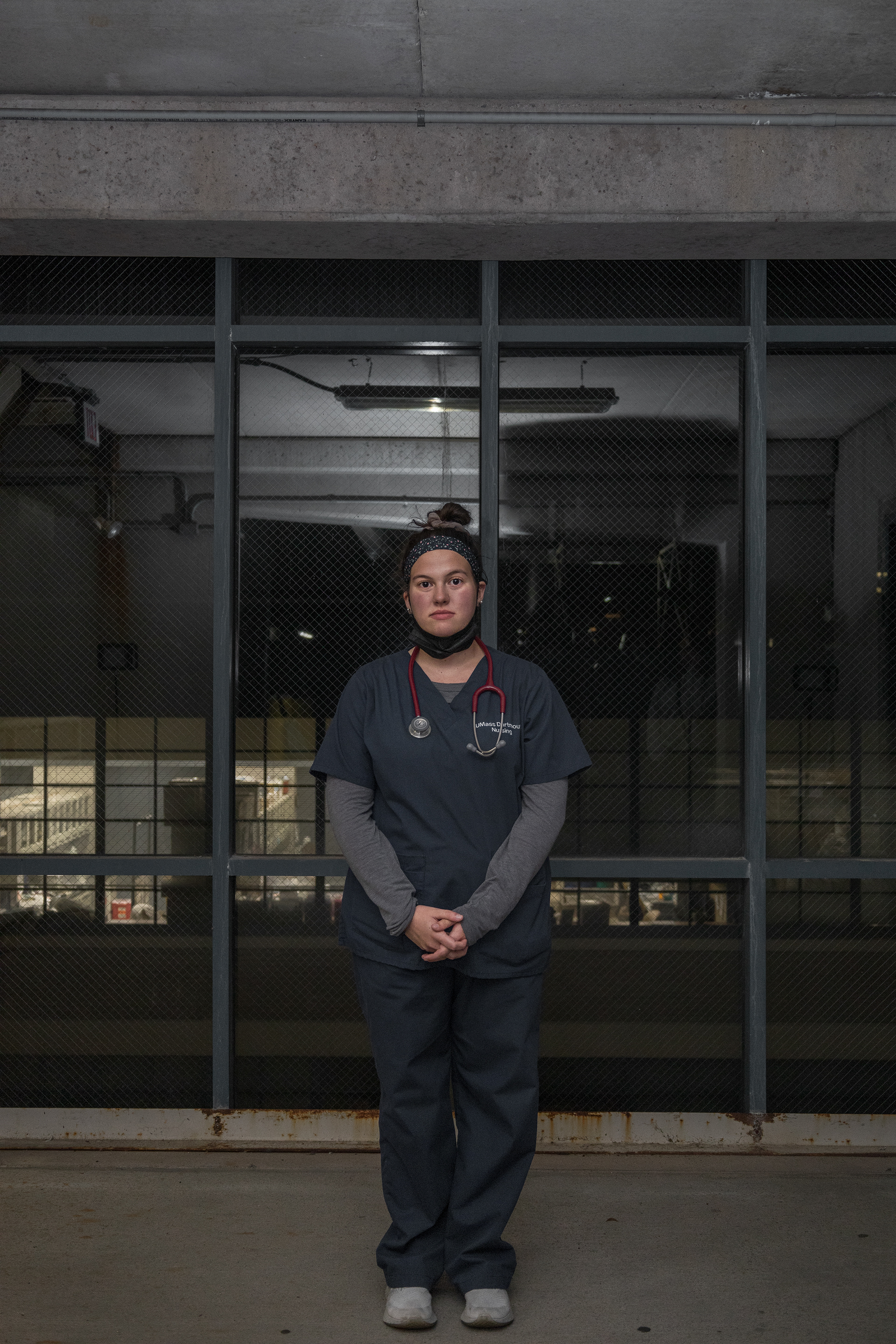
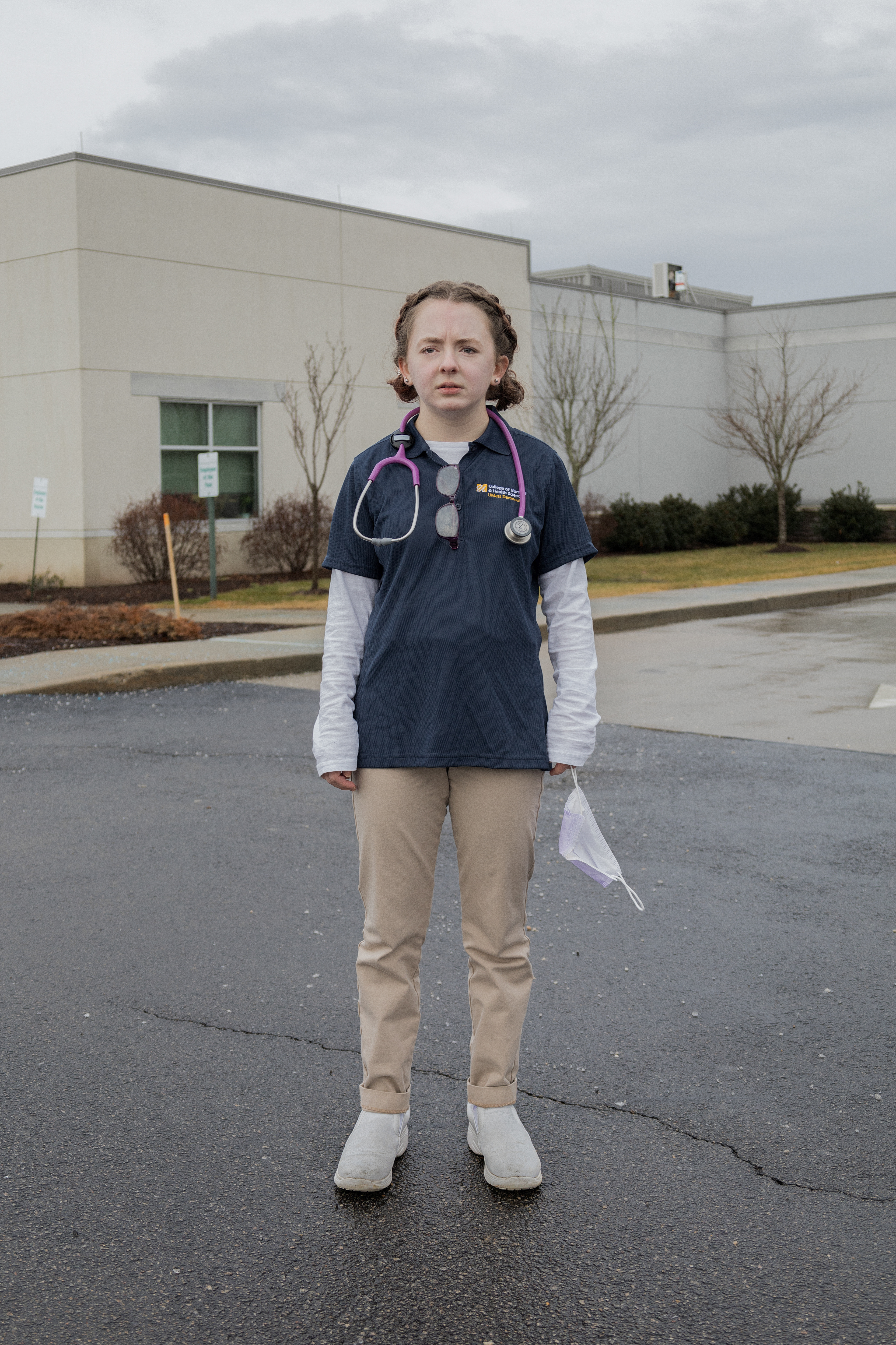
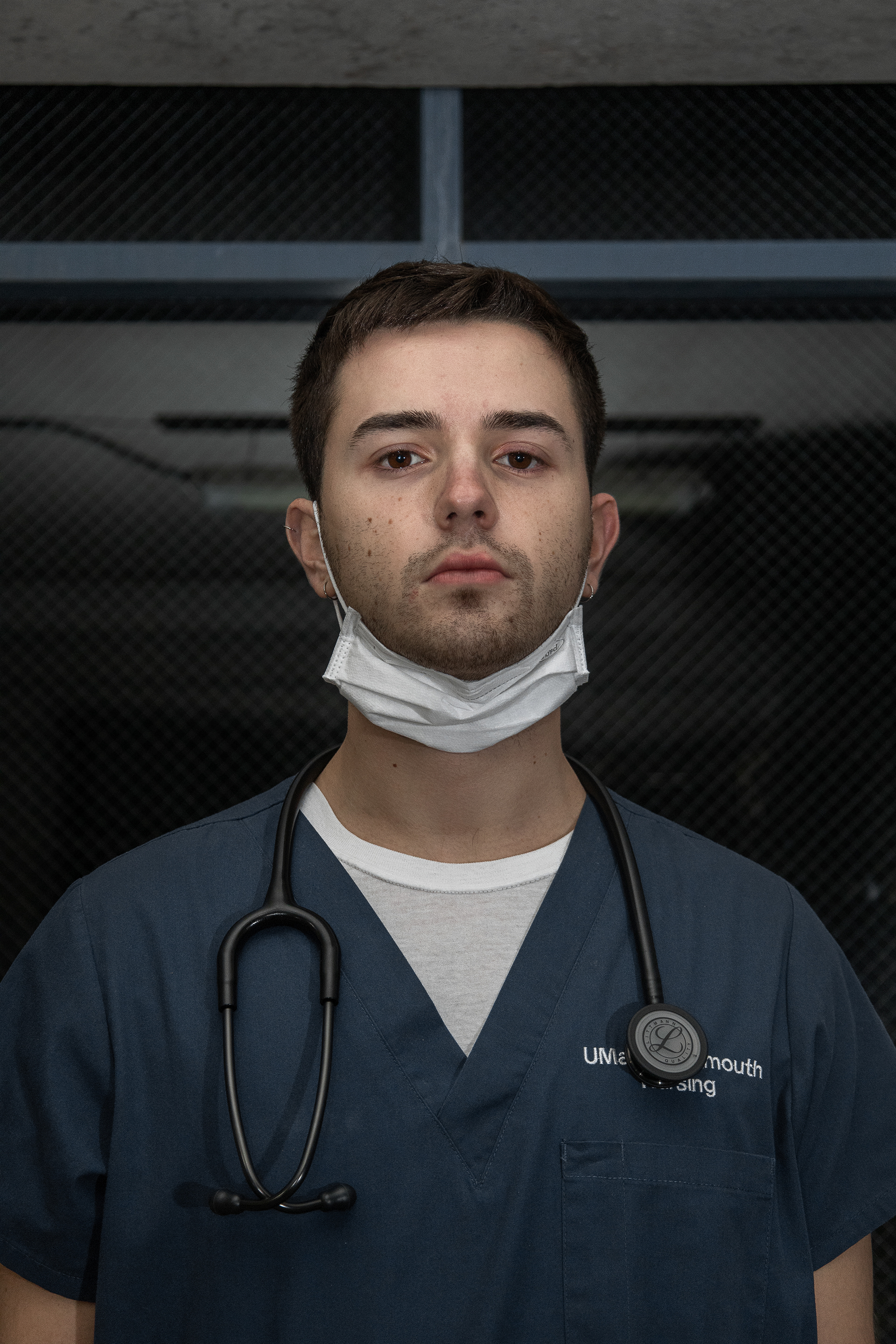
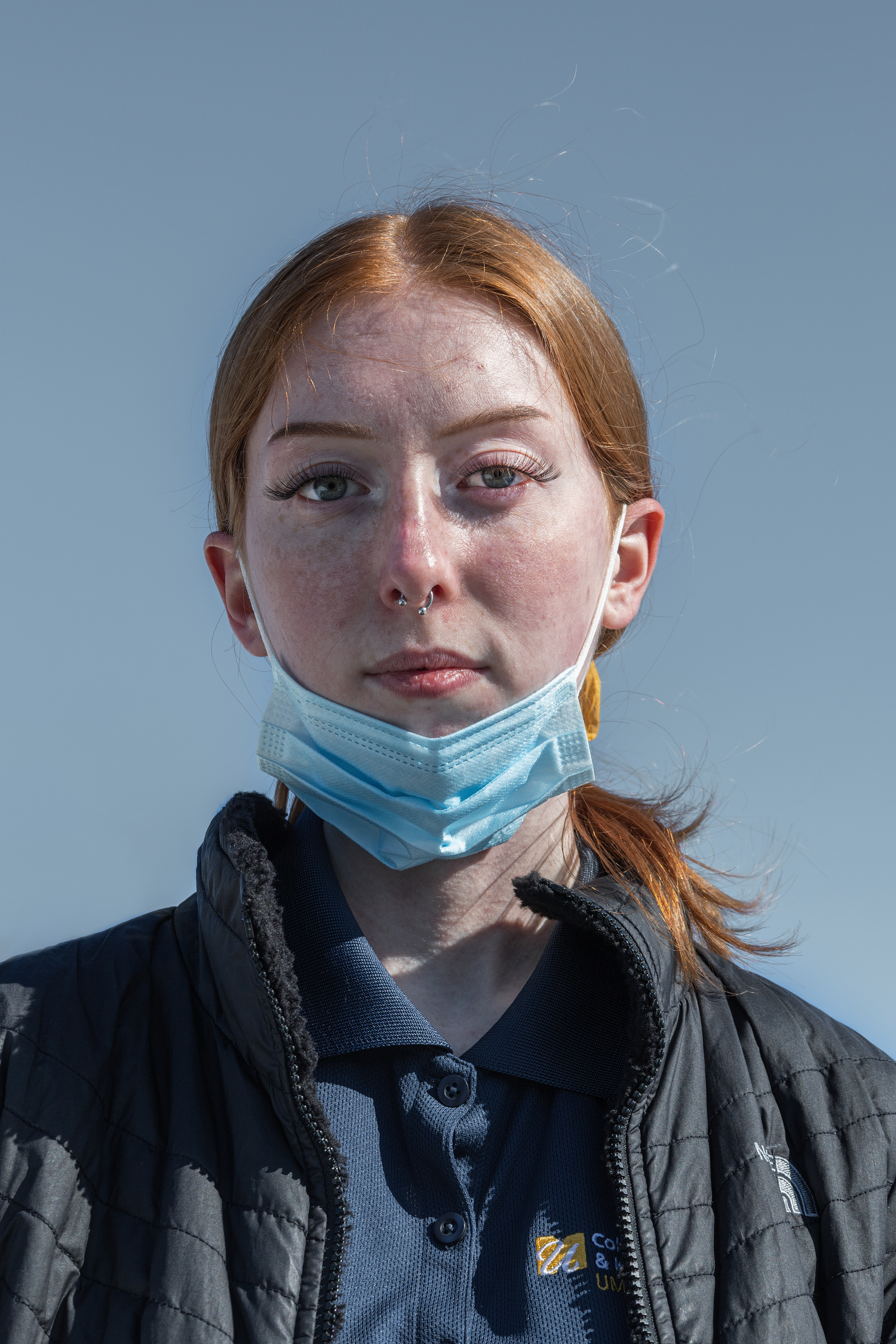
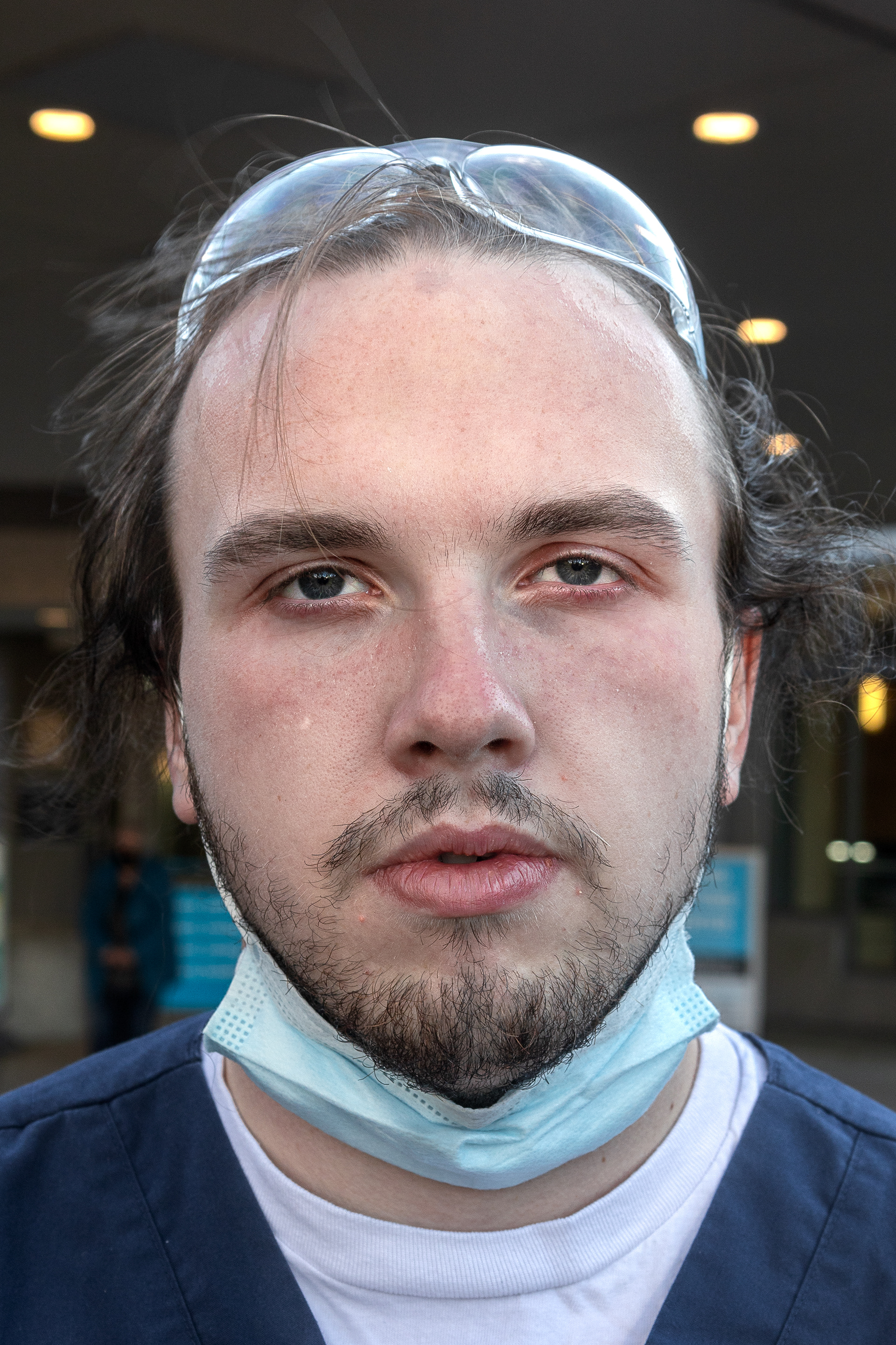
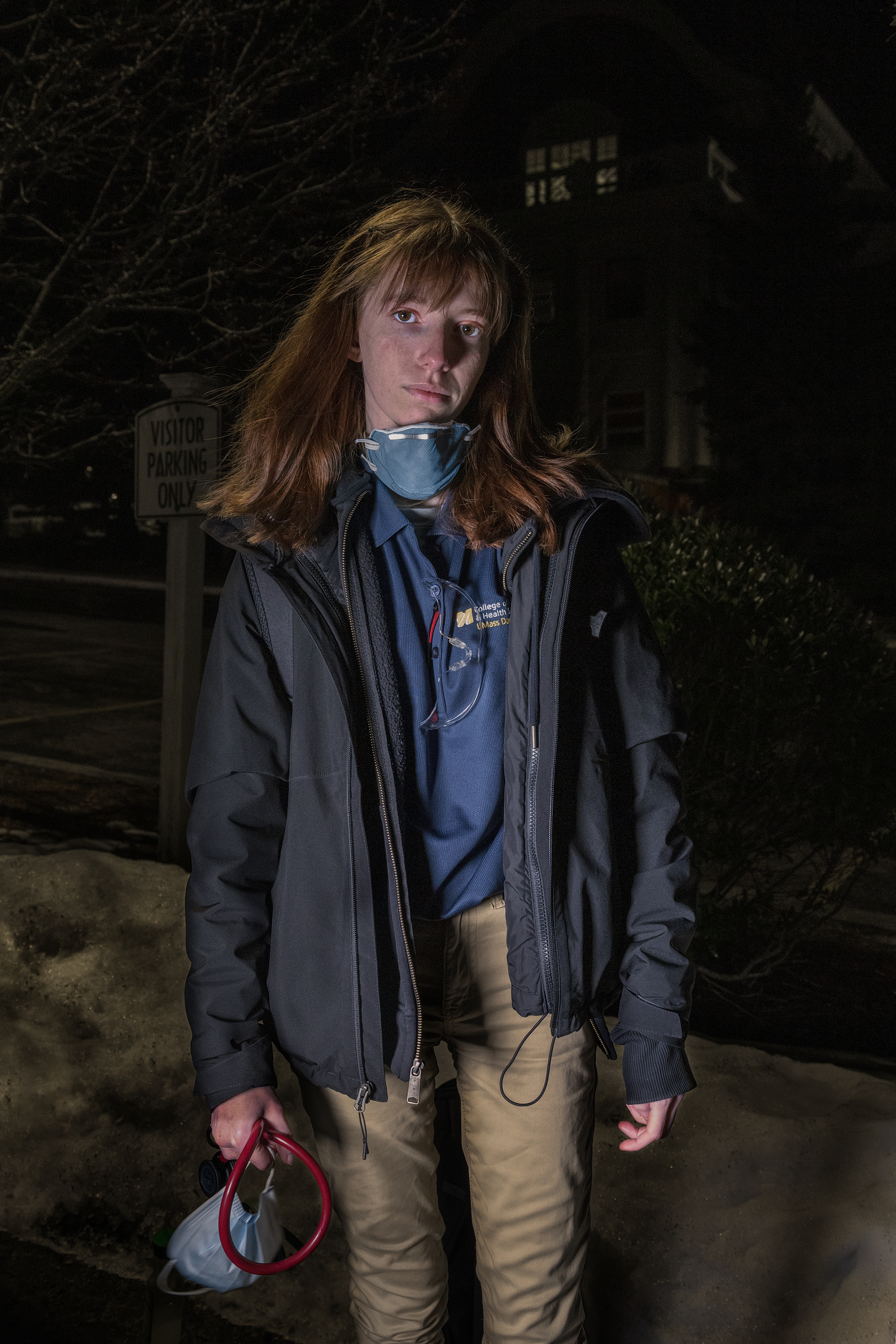
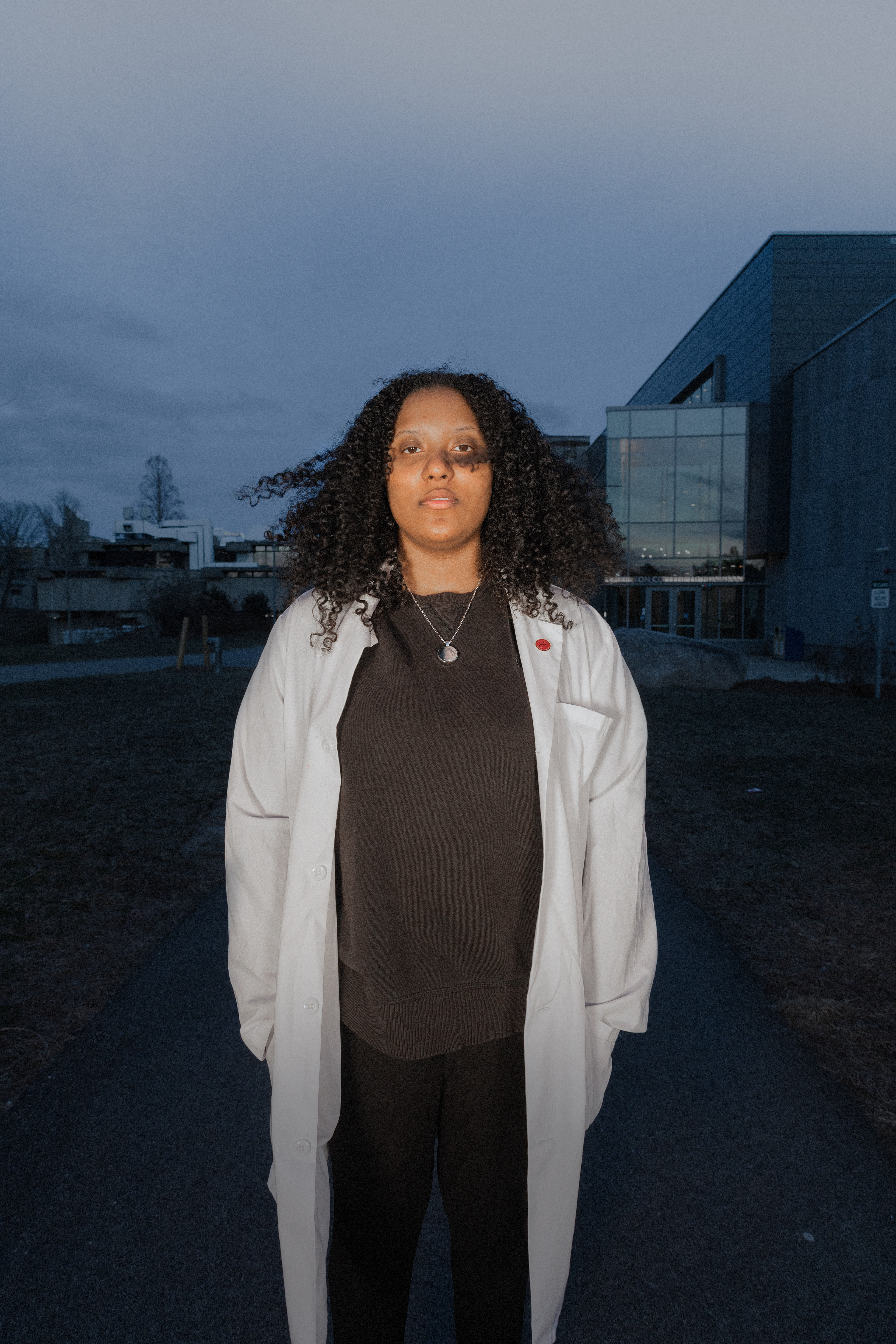
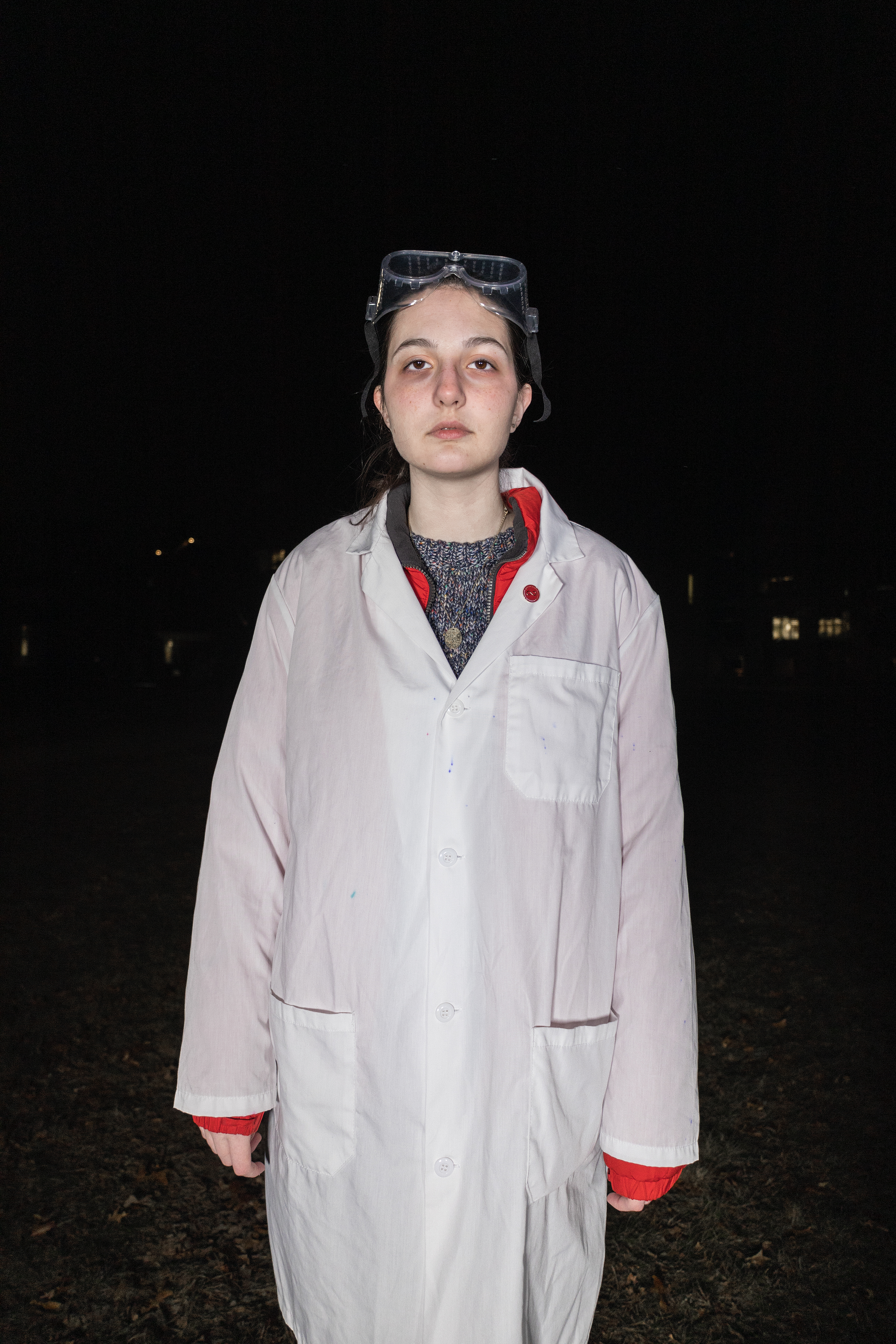
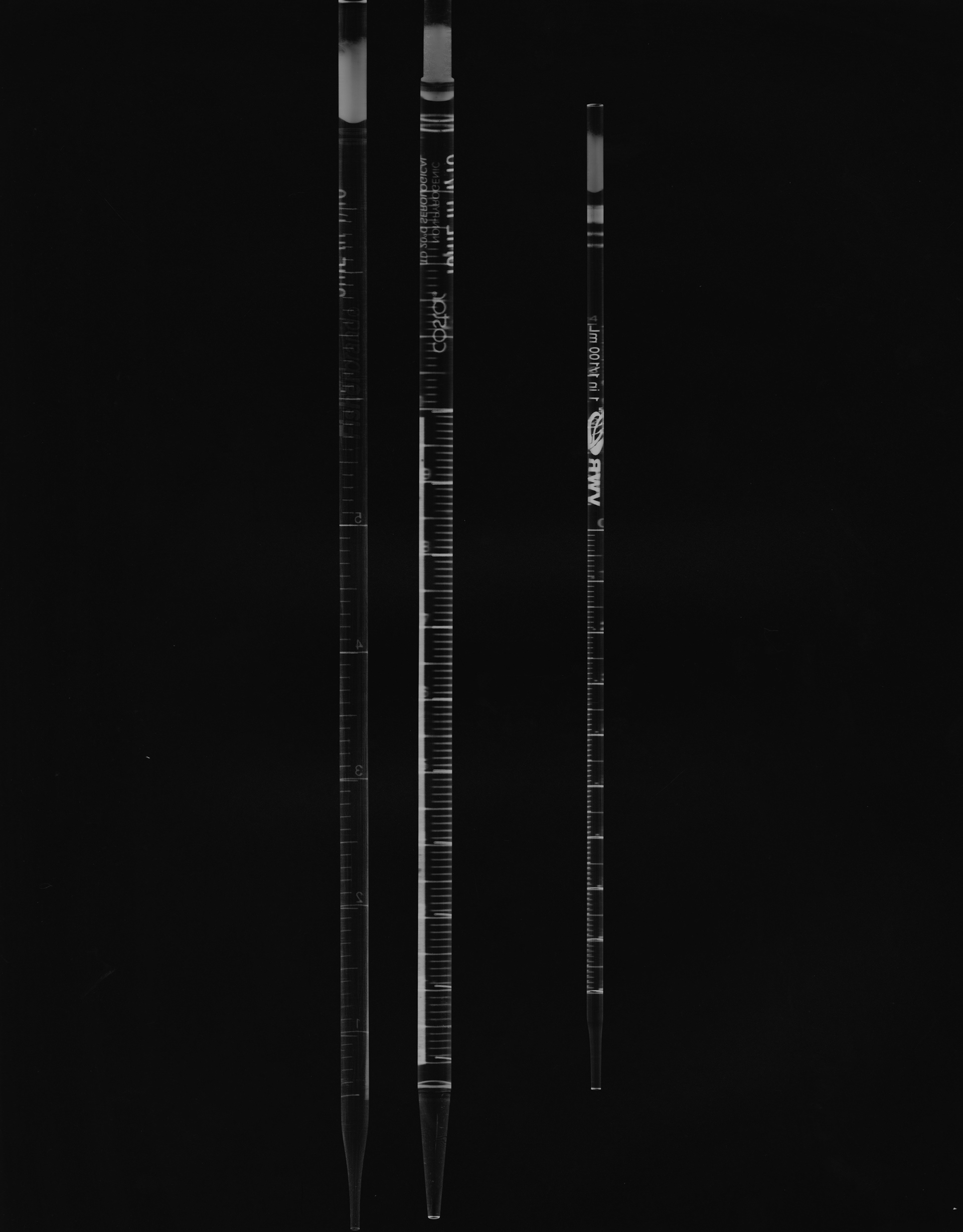
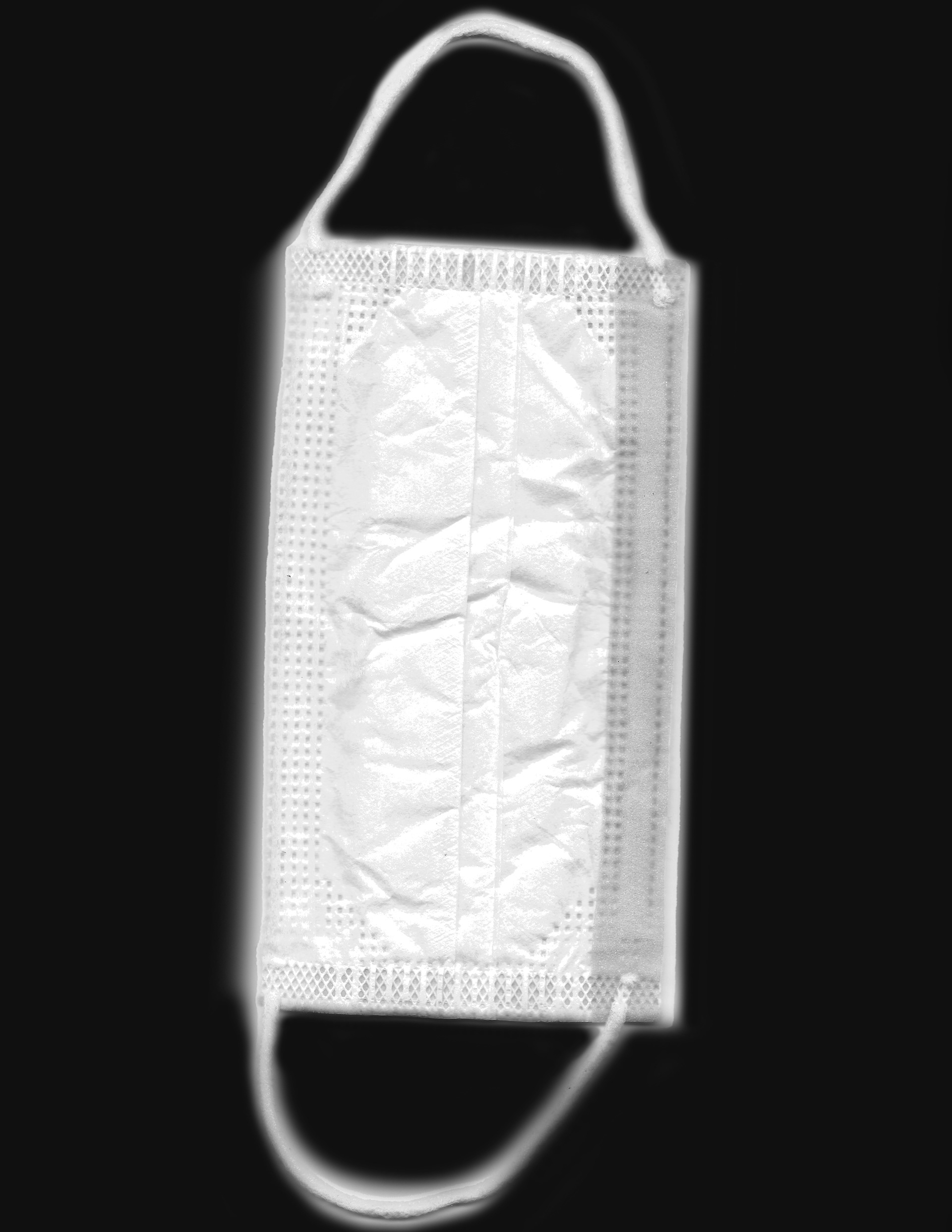
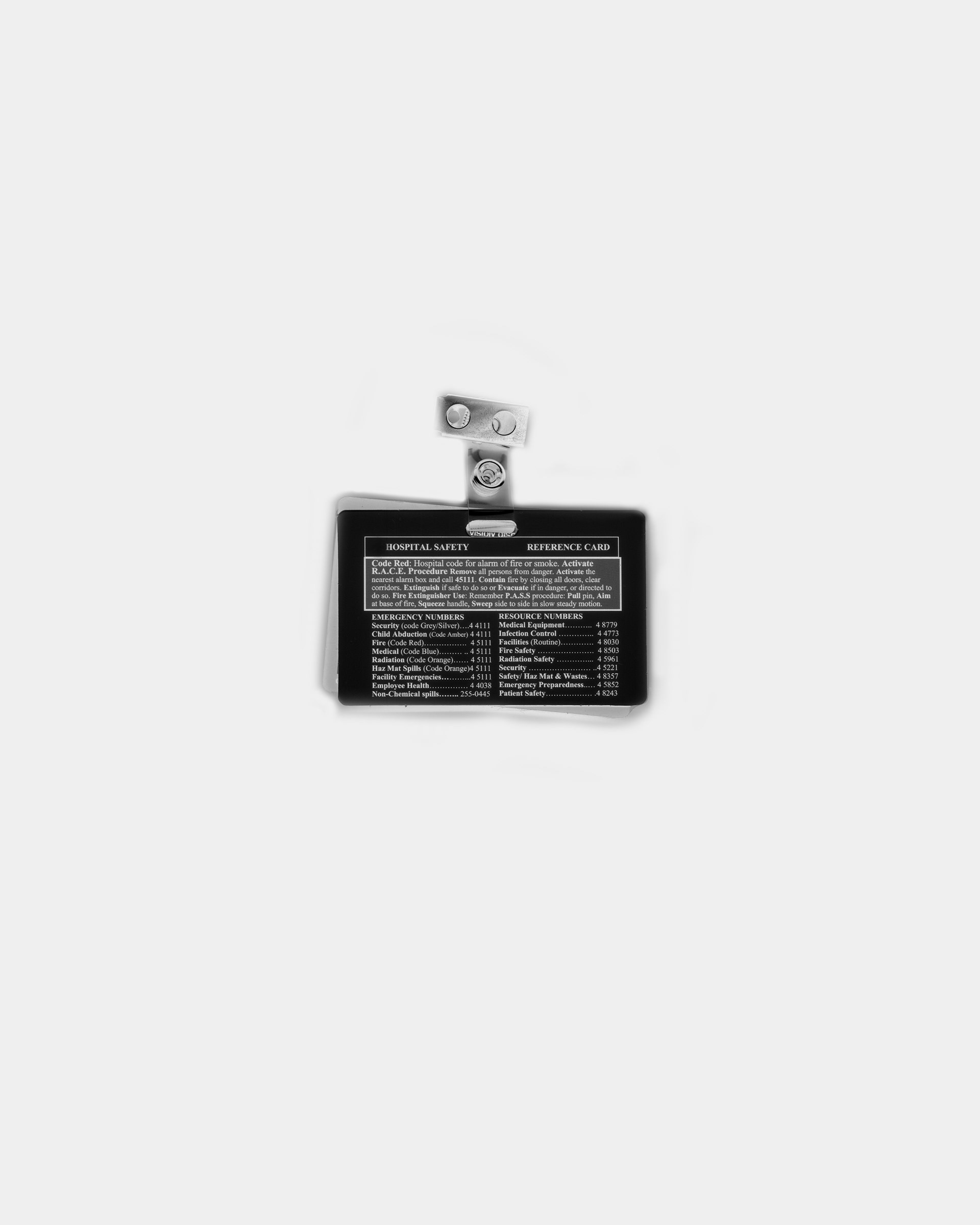
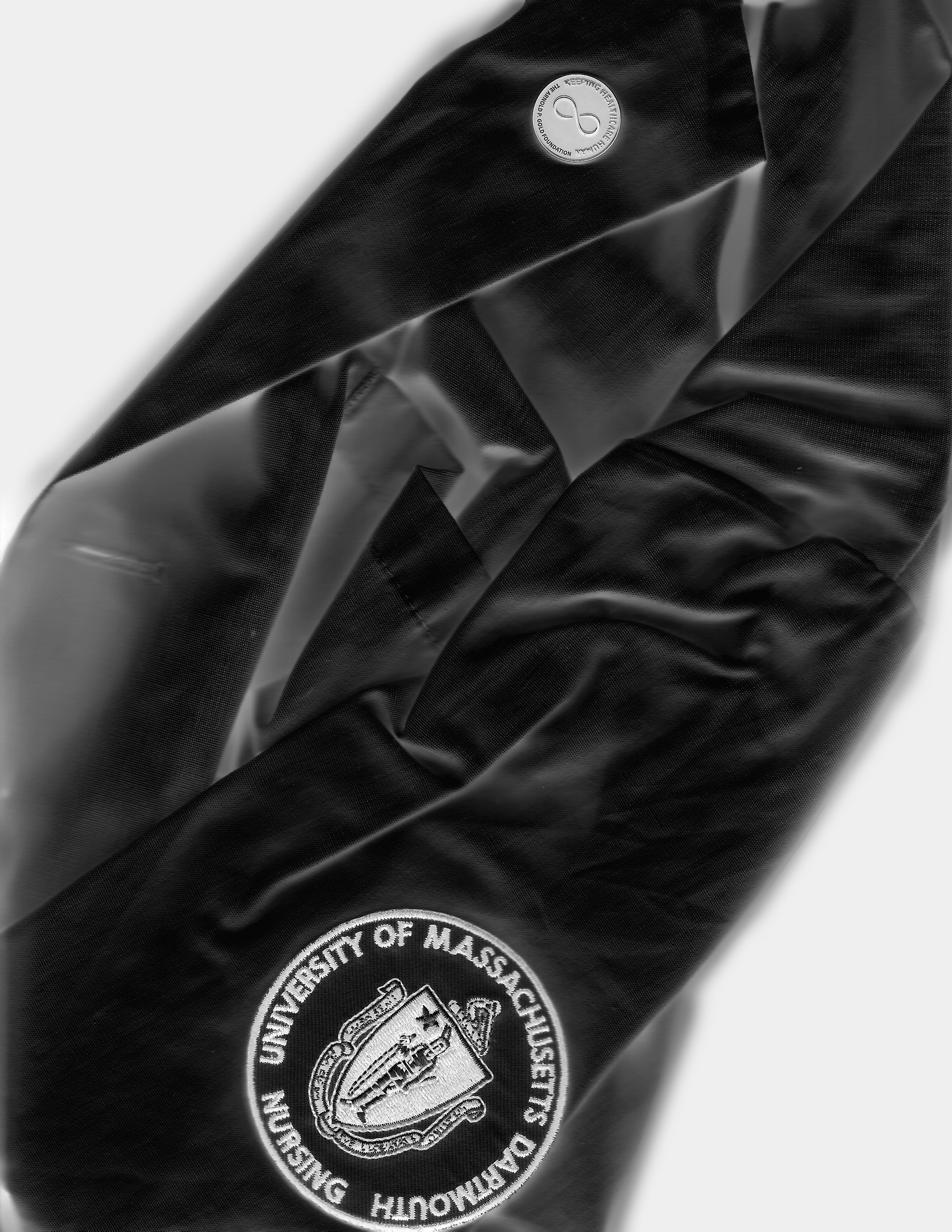

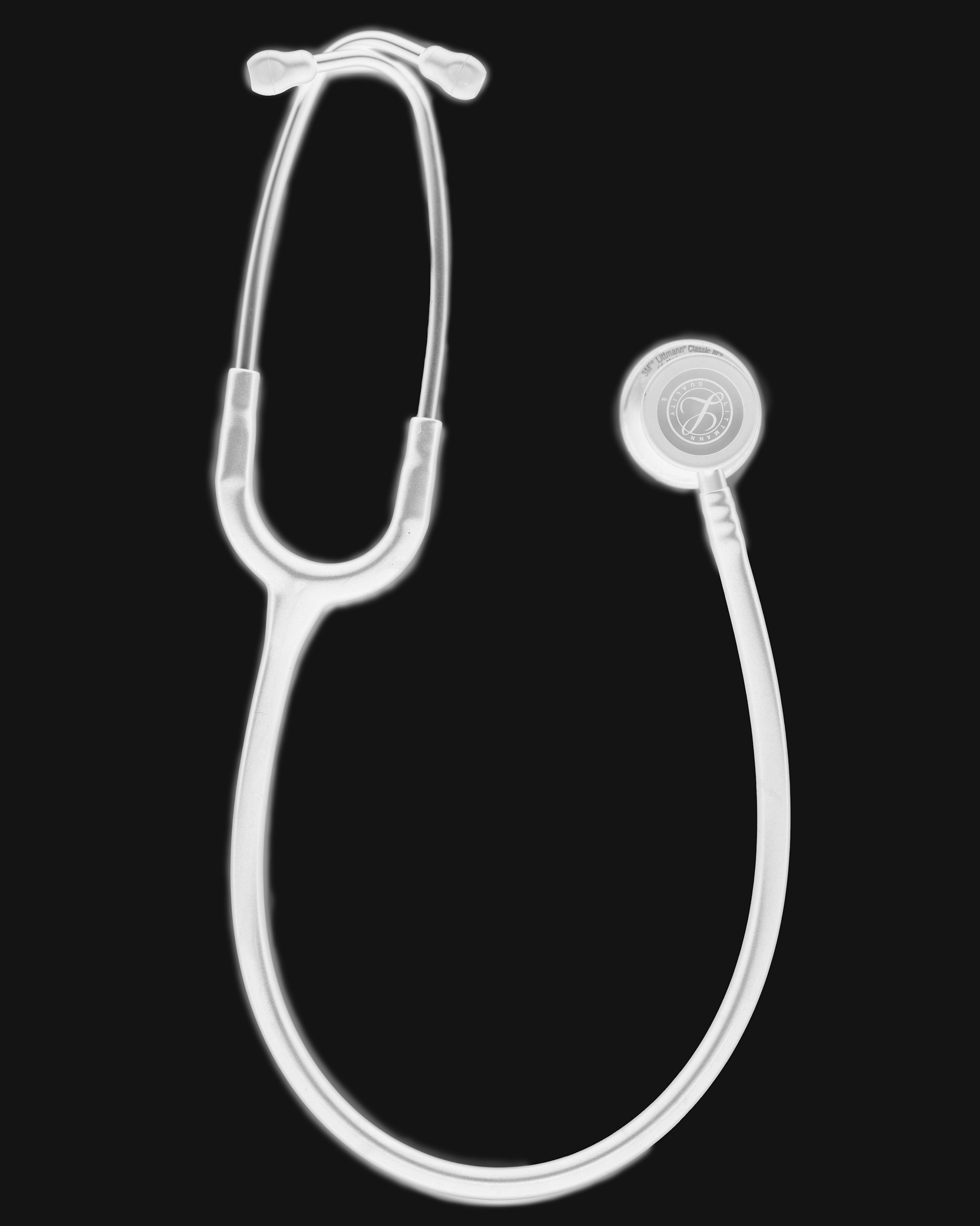
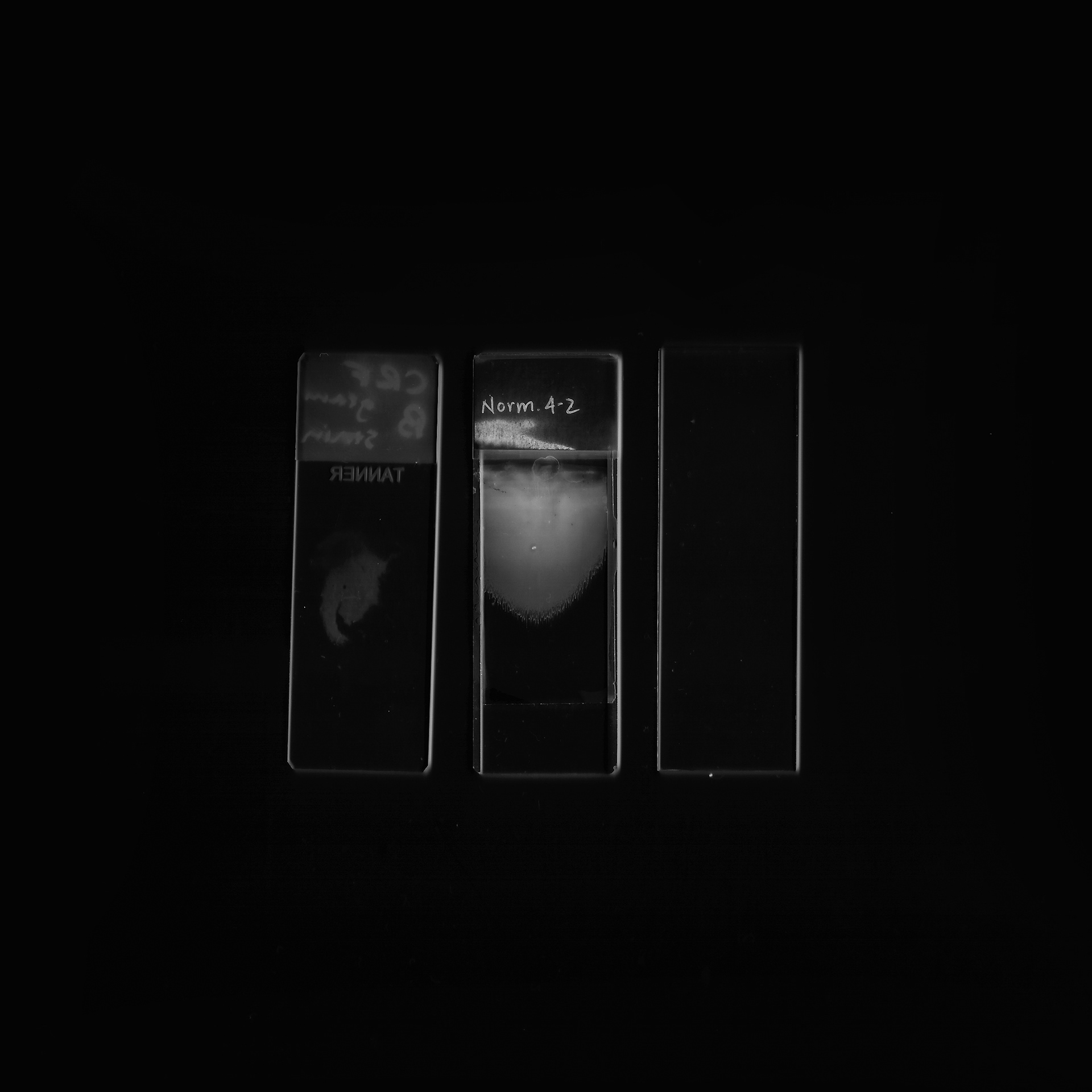
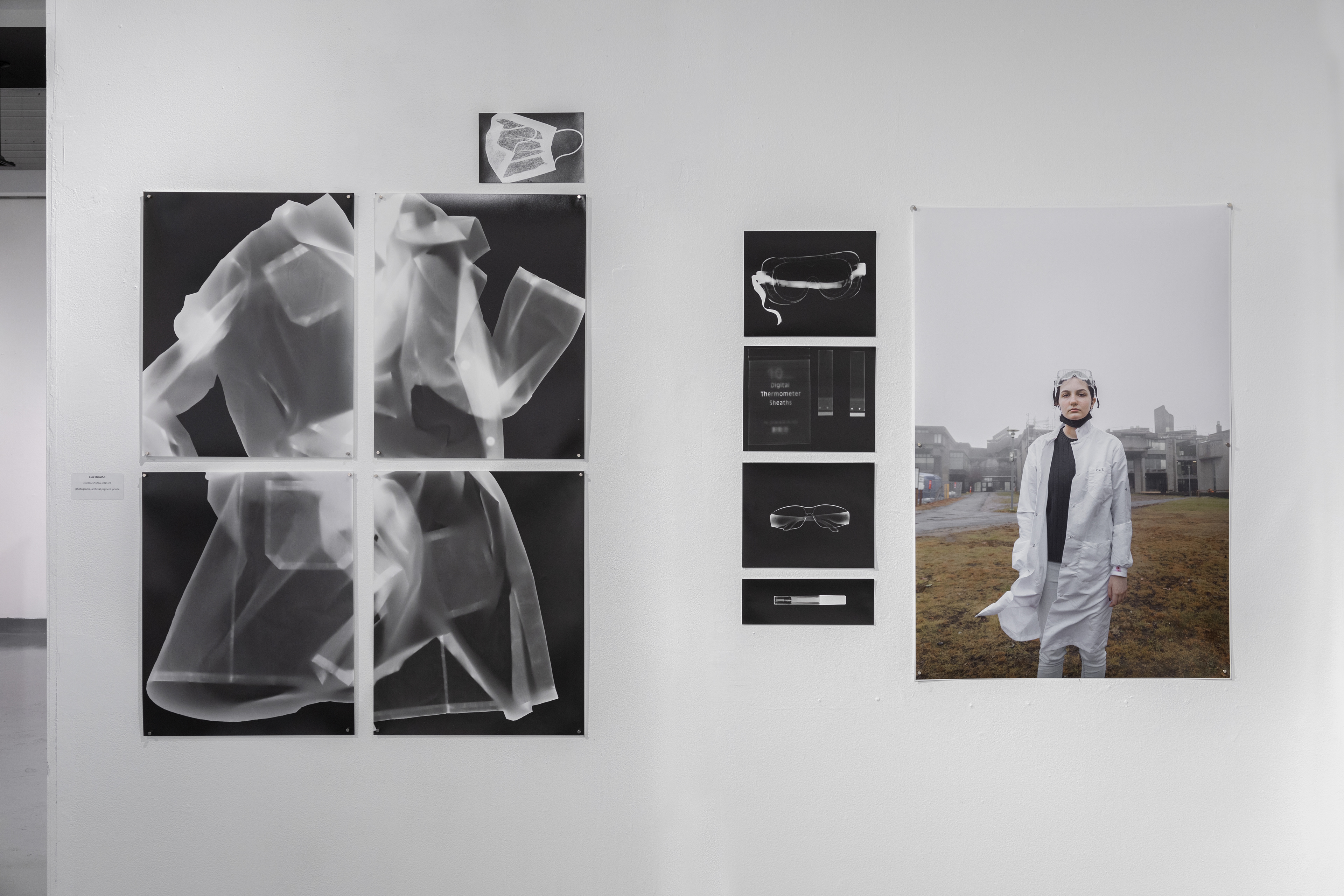
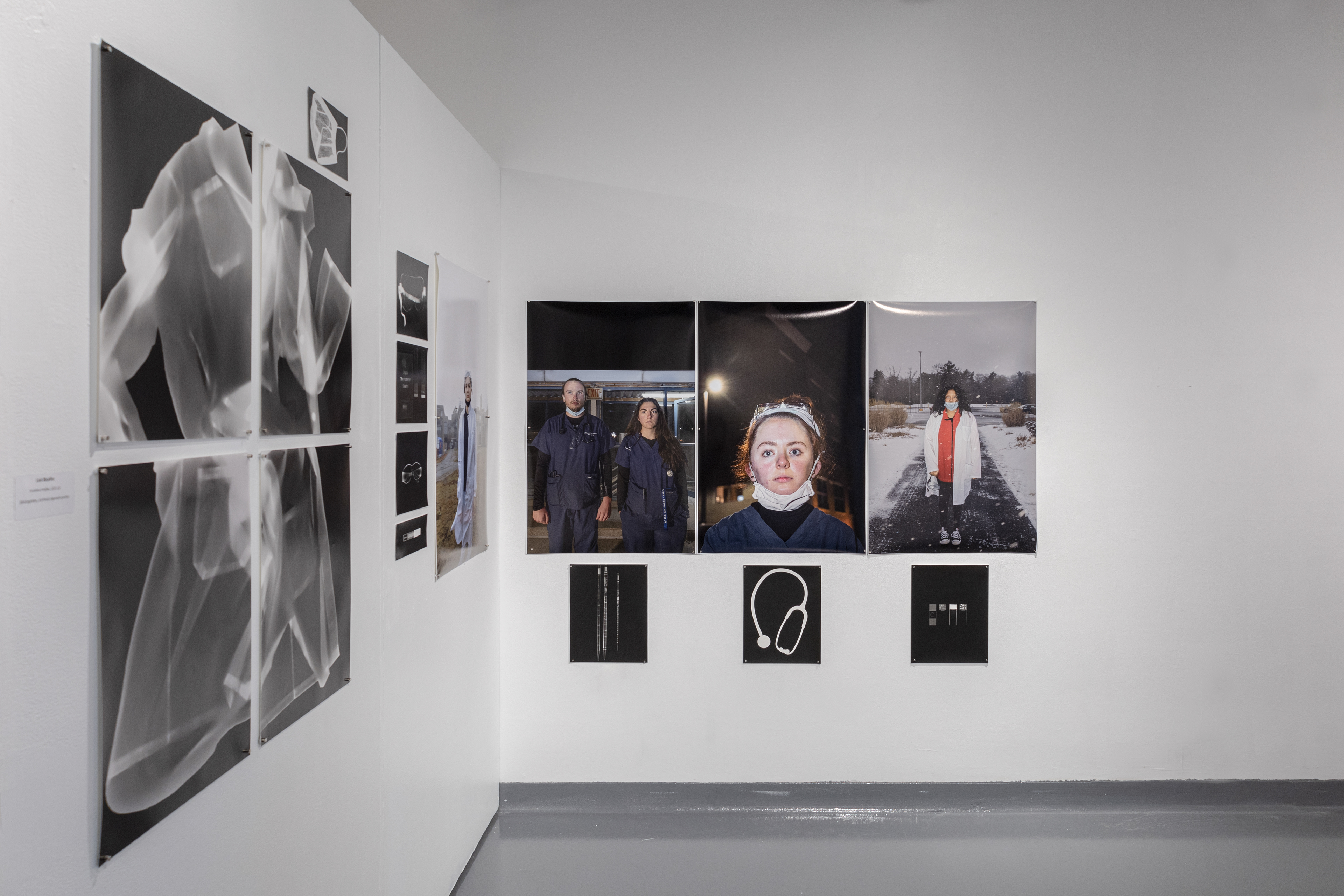
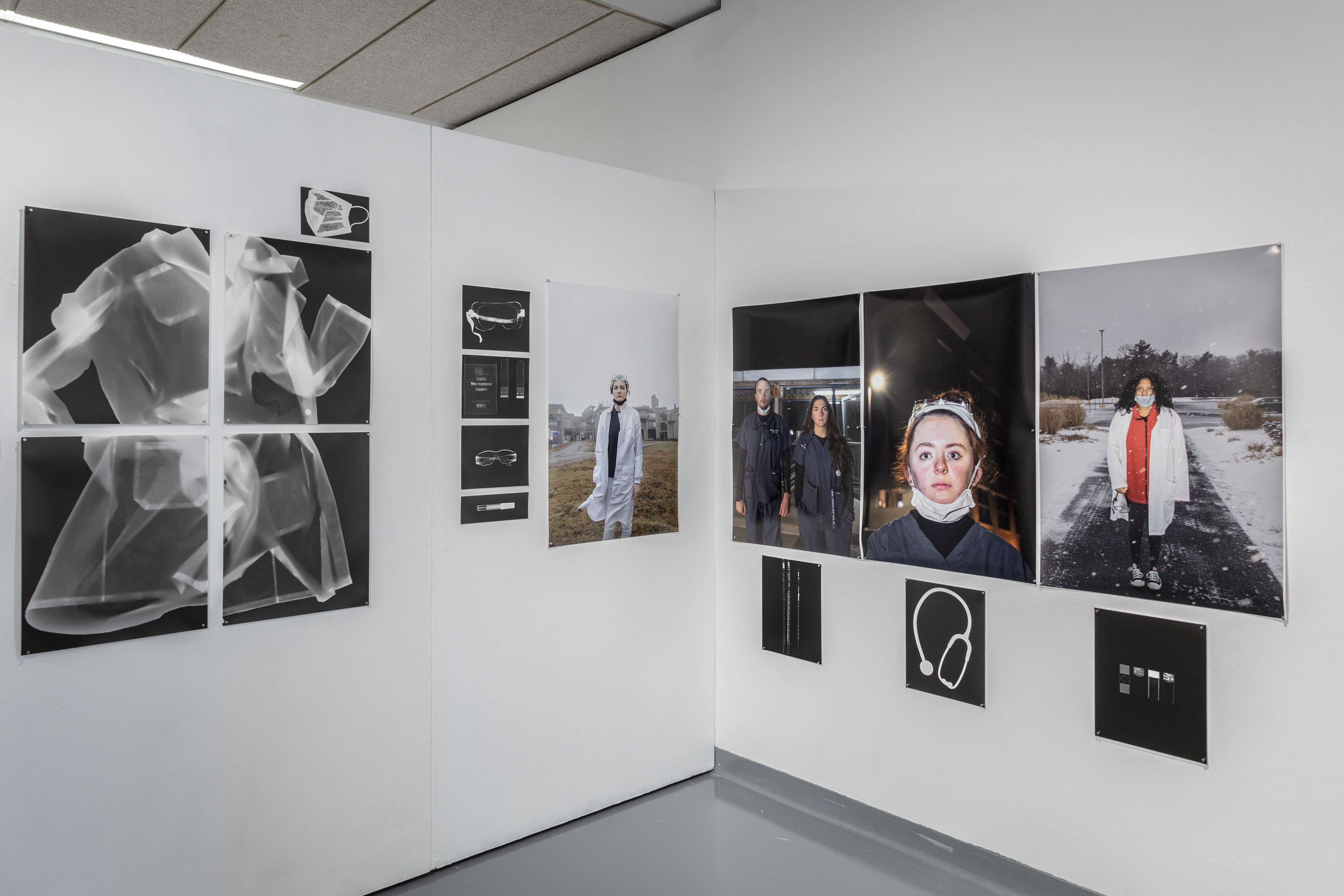
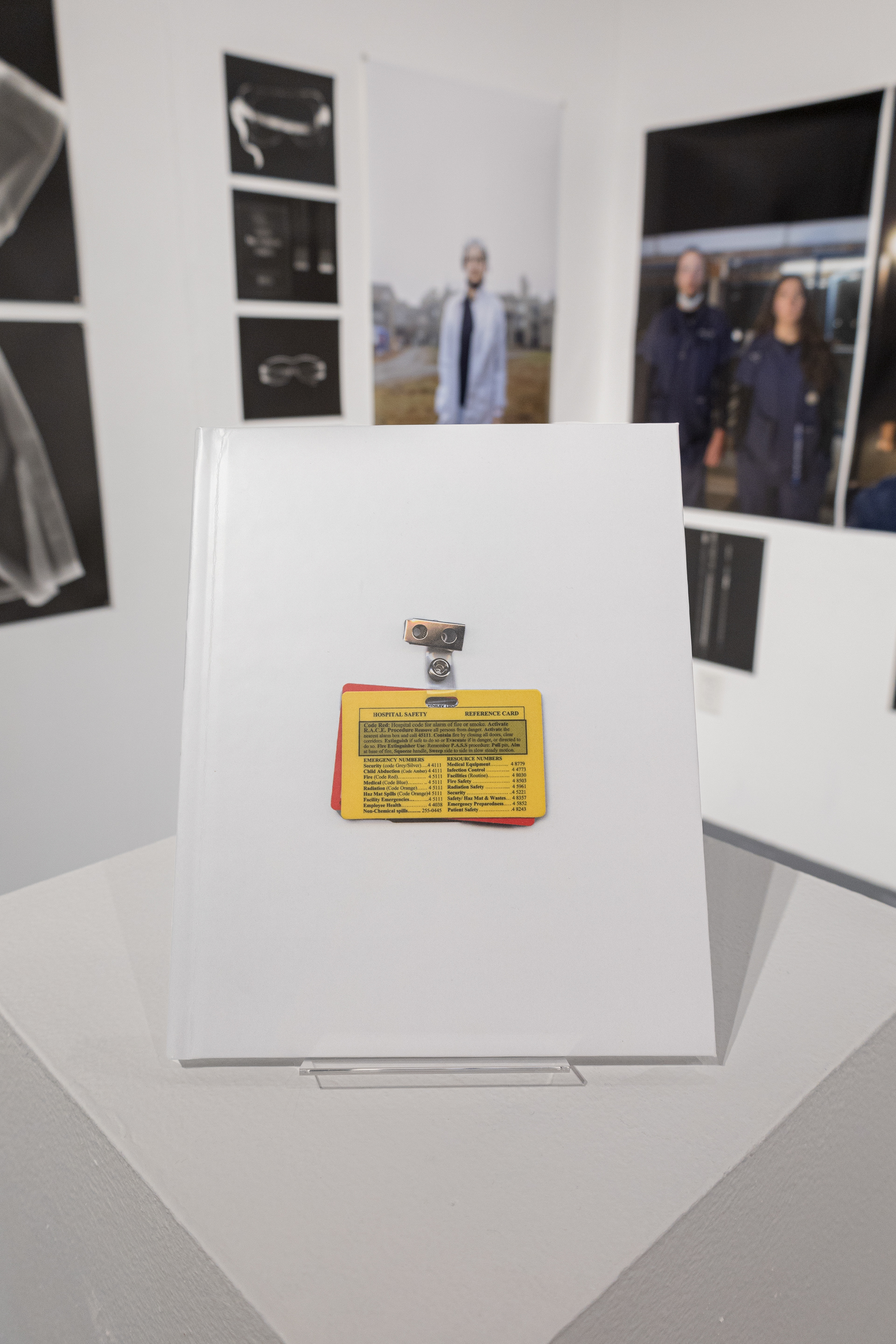
“Frontline Profiles”
While being engulfed by the Covid-19 pandemic, the role of medical workers as well as the consequent nationwide staffing shortage of nurses are subjects that I find particularly important. The United States is producing about 170,000 nurses a year, but 80,000 qualified applicants were rejected in 2019 due to the lack of teaching staff. [i] Thus, I decided to investigate the present and future of nursing students.
My interest lies in paying tribute to the journey of nursing students enrolled in the Umass Dartmouth College of Nursing. Through photography, I capture the exhaustion of each worker as every weary detail on a face illustrates the hours of labor from clinical shifts done in different hospitals and labs. With the aid of the students Connor, Lydia and Cristalina I meet and photograph with more nursing students. This process invites conversations about their future faced in the deficit of the market amid a crisis where more than 1,200 medical workers have died while working and being transferred between hot zones. [i]
My goal for this project is to portray the effects of the labor done by nursing students through heroic portraits along with photograms that show the tools and molecular analysis of bacteria that frame the steps of their routine. Photograms and scans in this case are more tactile than digital photographs since the process requires that I interact with the articles of their practice in order to document them. In this work I hope to bring a reflection from the audience about the subjects of the series, the importance of their profession, and the hardships faced. In my first weeks of accompanying these students we often discussed the risks and exploitation that come with the profession. Connor and two of his friends; Lydia and Julia, have pointed out that becoming a nurse is not done through circumstance or accident. No matter the risks and instabilities within the job, being a nurse is a choice. It is crucial that they become diligent and unflinching workers to maintain public health. An integral part of a nurse’s thinking is not dwelling on the hardships brought by the medical and political systems but to navigate through them to save lives.
[i] See ‘Nursing Is in Crisis’: Staff Shortages Put Patients at Risk, August 2021 by Andrew Jacobs for the New York Times.
Do you feel sometimes that the depiction of nurses as heroes can be a
deflection from true support? Why?
"Yes, I think it often glorifies and romanticizes the exceedingly
difficult work we do, which can be detrimental to our mental and
physical health. I always appreciate the sentiment of being considered
a "hero" but it doesn't change the fact that the current working
conditions of nurses are unacceptable. I would like to see material
change being made. Actions speak louder than words in a situation like
this. If this country truly views nurses as heroes, then they need to
do more to show that"
What apart from saving lives attracts you to the profession? what about the process?
"I won't speak for everyone, but for me it's making a difference in
someone's life. Saving lives is something that is done, but it's not
as dramatic or happens as often as media may make you think. What
happens the most is little moments between nurse and patient that
really add up and make the job rewarding. It's a fulfilling field and
it leaves me feeling satisfied. To me, the labor is nothing. It's far
more mental than physical. You really must know what you're talking about"
Covid happened at the beginning of your studies. What were your
thoughts then about the future and what are your thoughts now on this
pandemic and future ones?
"At the time, I thought COVID was going to be worse, not that it
wasn't bad, but I do think it could have been worse. I didn't really
think anything of the future because we didn't know what to expect.
Now, I think everything has changed. I think masks are going to be
standard in the hospital setting, which is a good thing. Hospitals are
gross, people are sick, and COVID isn't the only thing the masks are
protecting you from. I think the pandemic lifted the veil on a lot of
issues in the country. Despite everything, I don't think the pandemic
was taken seriously and another pandemic would not go over well"